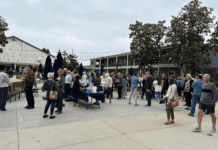Overview of CRT
In a series of articles this size there is no way to do justice (see what I did there) to the history and heritage of CRT which began in the 1980s and gained its footing through the work of legal scholars Derrick Bell, Alan Freeman, Richard Delgado, Kimberlé Crenshaw, Charles Lawrence III, Patricia Williams, and Mari Matsuda, among others. Concisely put, CRT challenges and interrogates the ways in which race, racism, and racial power (with particular emphasis on an expanded definition of white supremacy) are constructed and reified, specifically in legal culture, and more broadly, in society. CRT borrows insight from the Marxism of Antonio Gramsci, utilizes aspects of the Neo-Marxism of historic Critical Theory while challenging others, finds its most immediate roots in critical legal studies (CLS) but also departs and expands from it, and draws epistemological inspiration from historic luminaries such as W.E.B. Du Bois, Carter G. Woodson, Frederick Douglass, and Sojourner Truth.
CRT, like all contemporary manifestations of CST, is a hybrid of postmodernism and modernism. On one hand it is noticeably influenced by (but at points, resists) the postmodernism and poststructuralism (recognizing that some poststructuralists reject the postmodern label) of Jean-Francois Lyotard, Michel Foucault, and Jacques Derrida, among others and their interrogations of overarching metanarratives, their challenge to notions of neutrality, objectivity, and universal truth, and their emphasis on the inextricable relationship between language and power and the implications for society. Along these lines, CRT is skeptical of and critiques much of classical liberalism. On the other hand, CRT is a modernist enterprise in that it makes binding moral claims applicable to all people, everywhere. Its scholarship and popularized discourse are suffused with notions of what we should do, ought to do, indeed, must do.
Consequently, it is praxis oriented, that is, it doesn’t merely want to describe, it wants to prescribe. It wants to make changes to society, to emancipate and liberate. It encompasses issues of epistemology (the nature of knowing), ontology (the nature of being), and phenomenology (the nature of day-to-day lived experience). Therefore, in its most robust applications, CRT can (and does) operate as a working metanarrative or functional worldview.











